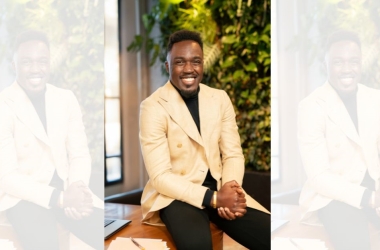CEO Recab Mwesigye Inspires MBA Students with Insights on Client Centrality and Consulting

Exploring Client Centrality and Effective Contract Formation
On 23 May, Recab Mwesigye, the founder and CEO of RM de Route B.V. and Stichting Kyakabi, delivered an engaging guest lecture to MBA (Master of Business Administration) students in Amsterdam, sharing his extensive expertise in consulting. With over 15 years of experience in empowering startups and medium-sized companies, Mwesigye has carved out a niche in crafting practical strategies for sustainable growth.
During his lecture, titled 'The Core of Consulting: Client Centrality and Contract Formation', he emphasised the importance of client centrality and contract formation. He shared a framework that can help organisations achieve sustainable growth. "My methods are quite practical," he said. "I had to remind students that consulting means you are either solving a problem or helping someone else achieve their goal. Having those basics gives them the notion to think about whether they are addressing a problem or assisting in achieving a goal."
The lecture started with a definition of client centrality. Mwesigye explained, "Utilising your expertise to solve a problem or help a company or an individual achieve their goals, and placing the client at the heart of your business strategy."
He highlighted the historical shift from product-focused strategies to customer-oriented approaches, driven by evolving market dynamics, technological advancements, and changing management philosophies.
"In the 20th century, having a good quality product and mass producing it guaranteed a market space," he noted. "In the 21st century, this changed with the advent of the Internet. Now, the credibility of your business is influenced by social media and customer feedback. Businessmen and women must approach their business from the perspective of their target market, asking the right questions and conducting thorough market research."
Mwesigye outlined the key elements of client centrality, which include understanding client needs and differentiating the ultimate need from an immediate want. "What I always advise is to analyse what the client wants, but also find out what the client needs," he said. "To get to what they want, you must solve what they need, ensuring they don't encounter the same problem again."
Gaining a clear understanding of the client's business before the initial appointment and then developing strategies is key. In this case, it is important to conduct a 'needs assessment'. He was very excited to share this process with students, who had to determine the client's actual need versus their stated goal. The example given was a client wanting to create a legacy and double revenue in the shortest time possible. The actual need was understanding the business foundation, core values and unique value proposition.
Of this 'needs assessment' itself, he said: "The students were very excited because they didn't see it coming... Sometimes, someone will tell you something that sounds simple, but you've been rotating around the circle trying to figure it out."
Practical Advice for Aspiring Entrepreneurs
He also provided advice for students aspiring to start their own businesses. "Before you get into the market, first understand what comes easy for you," he advised. "You can start with a service and later introduce a product. It's important to build a business model that adds value rather than just focusing on the number of clients."
He also advised, "The size of a company does not matter if you are not significant to the client. Significance matters more than size because having a big company doesn't necessarily guarantee success."
Mwesigye urged students always to address the what, why and how in consulting. He left them with a final thought: "Consulting is not just about solving problems and driving growth for a company or individual. It is also about fostering long-term, sustainable relationships founded on trust and credibility. This approach facilitates ongoing growth, stable retainers and high-value propositions."
WUP 10/06/024
by Erene Roux
©WUAS Press